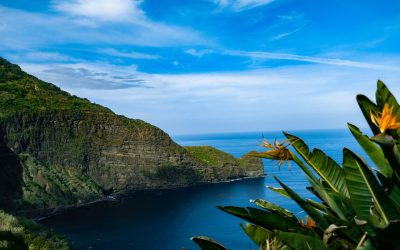Portugal claimed the top spot in the 2025 Global Retirement Report. More Americans now choose Portugal as their retirement destination to improve their quality of life.
This stunning European country attracts retirees from around the world. It combines affordable living with a high quality of life and a relaxed Mediterranean lifestyle. The Portugal retirement visa process offers a clear path for non-EU citizens through the D7 Visa. To qualify, retirees need steady passive income, like pensions or rental earnings. Most retirees can meet the current minimum requirement of €820 per month.
Living costs in Portugal beat other Western European countries—A comfortable life in smaller towns costs between €1,400 and €1,800 monthly.
The typical processing time for Portugal’s retirement visa takes about four months. This piece guides you through essential things to think about before moving to one of the world’s safest countries for retirees.
Why Portugal Appeals to Retirees
Portugal is an attractive destination that combines several advantages for retirees looking to settle abroad. This European gem draws people with its sun-drenched coastlines and peaceful communities, making moving to Portugal as a retiree an appealing choice.
Mild climate and scenic beauty
Portugal’s climate ranks among Europe’s most inviting, with sunshine blessing the country more than 300 days yearly. The Mediterranean weather lets retirees stay active and outdoors year-round. The country’s weather patterns create three distinct regions that suit different temperature priorities:
- Northern Portugal (including Porto): The region gets more rain and humidity, which creates lush green landscapes with mild winters
- Central regions (including Lisbon): Winters stay mild and wet, while summers turn warm and dry. Winter temperatures rarely drop below 5°C, and summer ranges between 25°C and 30°C
- Southern Portugal (including the Algarve): The area enjoys warmer, drier conditions and mild winters that average 16-18°C (60-65°F)
Nature’s beauty in Portugal captivates visitors and residents alike. The country’s coastline runs over 800 km, and some of Europe’s most beautiful beaches are there. The Algarve’s Praia da Marinha and Praia de Benagil offer classic Mediterranean charm. Alentejo’s countryside shows another side of Portugal with rolling hills covered in olive groves and vineyards.
Safe and peaceful environment
Safety matters greatly to retirees, and Portugal delivers exceptional results. The Global Peace Index 2024 ranks Portugal as the world’s seventh safest country with a score of 1.333.
Several key factors contribute to Portugal’s safety record:
- Violent crime remains rare
- Political stability stays strong
- Prison population stays low
Portuguese life moves at a gentler pace than in many Western countries. Even big cities like Lisbon and Porto maintain a relaxed rhythm. Welcoming locals and close-knit communities help retirees feel at home and truly enjoy their retirement years.
Affordable cost of living compared to the US and the UK
Money goes further in Portugal than in other Western nations. Living costs run 39.2% lower than in the United States, while rent costs 54.2% less. British expats find costs about 35% lower than at home, with rent nearly 40% cheaper.
These savings show up everywhere:
Restaurants charge 38% less than US prices. A nice dinner for two costs around €45 ($52), and coffee can be as cheap as €0.90.
Housing remains affordable despite recent price increases. Small Portuguese towns offer furnished two-bedroom homes for just $450 monthly. Lisbon’s furnished one-bedroom apartments near amenities start under $1,000.
Monthly budgets vary by location. Couples live well on $1,500-$2,000 in smaller towns and villages. City life in Lisbon or Porto typically needs $2,500-$3,000 monthly.
The value becomes clear when comparing cities: a Lisbon lifestyle costing $4,451 would require $10,243 in New York. New York’s consumer prices run 98.9% higher than Lisbon’s before rent, jumping to 130.1% higher with rent included.
Moving to Portugal as a Retiree: Understanding Residency Options
Legal residency is a vital first step in moving to Portugal as a retiree. Portugal gives you several ways to become a resident based on your citizenship status and financial situation.
Overview of the D7 Visa for retirees
The D7 Visa, or the Portugal Retirement Visa or Passive Income Visa, is the best way for non-EU retirees to get residency. This visa works well for people with regular passive income outside Portugal. You’ll need to show passive income that matches at least the Portuguese minimum wage of €870 per month. You must also keep €10,440 in a Portuguese bank account.
Start your application at the Portuguese consulate in your home country. You’ll get a temporary visa that lasts four months. You must travel to Portugal and request a residence permit through AIMA (formerly SEF) during this time. The residence permit usually lasts two years, and you can extend it for three more years.
The D7 Visa gives you these benefits:
- A way to permanent residency after five years
- Access to Portugal’s public healthcare system
- Freedom to bring family members (spouse and dependent children)
- Low physical presence requirements
- No big investment needed
Retirees love the D7 option because it looks at income instead of investment, making it much cheaper than investment-based visas.
Golden Visa through investment
The Portugal Golden Visa is another option for retirees who have more money and want extra flexibility. This residency-by-investment program requires you to invest in Portugal’s economy.
You can choose from several investment options:
- €500,000 investment in qualified Portuguese investment funds
- €500,000 investment in a Portuguese business that creates at least five jobs
- €250,000 donation to Portugal’s artistic or cultural projects
The Golden Visa requires you to stay in Portugal for seven days in the first year and fourteen days afterwards. This works excellently for retirees who want homes in different countries while keeping their Portuguese residency.
The Golden Visa takes the same time to get permanent residency – you can apply after five years of legal residence. Permanent residency lets you live in Portugal forever with access to healthcare, social security, and legal work opportunities.
EU citizens and Certificate of Registration
EU citizens, plus those from EEA countries and Switzerland, have a much easier retirement process in Portugal. They can enter and stay without applying for a visa.
EU citizens must register with Portuguese authorities after three months. They need to get a Certificate of Registration (sometimes called CRUE—Certificate of Registration for EU Citizens) from their local council.
You’ll need these things to register:
- A valid identification document
- Proof of sufficient income (for retirees)
- Complete health insurance
The certificate costs about €15 and stays valid for five years. This document proves your legal residence status, lets you access Portuguese services, work opportunities, and healthcare, and helps you get permanent residency later.
Your choice of residency path is the foundation of your retirement in Portugal. Each option has advantages that depend on your situation, citizenship status, and plans.
Financial Planning Before the Move
Thoughtful financial planning is the lifeblood of a great retirement abroad. You need to pick your preferred residency pathway first. After that, dealing with money matters becomes your next priority when moving to Portugal as a retiree.
Estimating monthly living expenses
Life in Portugal costs less than in many Western nations. A retired couple can live well on USD 2,500 to USD 3,000 monthly outside major cities. People who prefer Lisbon, Porto, or the Algarve should increase this budget.
Your location really affects your costs:
- Smaller towns: USD 1,500-2,000 monthly for a couple
- Major cities: USD 2,500-3,000 monthly for a couple
- Individual retirees: Around USD 2,000 monthly outside major cities
Housing will be your most significant expense, whether you rent or pay a mortgage. You can find furnished two-bedroom rentals from USD 450 monthly in Portugal’s interior. Even in Lisbon, you can still get a furnished one-bedroom apartment near amenities for under USD 1,000.
Your utility bills depend on your home’s size and who lives there. One person might pay USD 85-95 monthly for electricity, water, and garbage pickup. Couples should set aside USD 130-140. High-speed internet and cell phone packages add another USD 50-75.
Opening a Portuguese bank account
You’ll need a Portuguese bank account to handle daily expenses and meet visa requirements. Portugal makes it easier for foreigners to open accounts than most European countries.
Start by getting your Portuguese tax identification number (NIF) for any money matters. Then gather these documents:
- Valid passport or identification
- Proof of address (recent utility bill or rental agreement)
- Confirmation of your NIF
- Proof of income or employment
- Portuguese phone number (some banks ask for this)
- Initial deposit (usually €250-300)
ActivoBank, Banco N26, and Millennium BCP let non-residents open accounts online. You’ll usually need a video call with someone from the bank to check your identity.
Understanding the Portugal retirement visa income requirement
The D7 visa (Portugal retirement visa) needs proof that you have enough passive income to support yourself. You must show you get at least €870 monthly (Portugal’s minimum wage in 2025).
You must keep at least €10,440 in your Portuguese bank account during your two-year application period. This amount goes up if you bring family:
- Extra 50% (€5,220) for a spouse or family member over 18
- Extra 30% (€3,132) for each child under 18
Your passive income can come from:
- Social Security benefits and pensions
- Rental income
- Dividends from investments
- Intellectual property royalties
Managing pensions and passive income
Expats living in Portugal have several ways to handle their retirement funds:
- Transferring pensions: Some countries let you move pension funds to Portugal. UK residents might want to look into transferring to a Qualifying Recognised Overseas Pension Scheme (QROPS) for possible tax benefits.
- Receiving foreign pensions: Many people keep getting their pensions from back home.
- Supplementary private pensions: Portuguese private pension schemes could boost your retirement income if you move for good.
Portugal’s Non-Habitual Resident (NHR) status might let you skip taxes on foreign income, including pensions, for your first ten years. This tax setup makes Portugal extra appealing, but you should discuss your case with a financial advisor.
Healthcare Access and Insurance
Quality healthcare tops the list of concerns when retirees think about moving abroad. Portugal makes this easier with its complete healthcare system that provides reliable medical care through public and private channels.
Public healthcare system (SNS)
Portugal’s tax-funded public healthcare system runs under the Serviço Nacional de Saúde (SNS). This 1979-old universal system covers mainland Portugal, while the Azores and Madeira run their own healthcare systems. The SNS provides the most essential medical services free of charge. You’ll pay small co-payments of around €5 for non-essential treatments.
General taxation and social security contributions fund the SNS. Retirees don’t need these contributions to use the services. The system gives you access to:
- General practitioner consultations
- Hospital treatments and surgeries
- Maternity care
- Community medical programs
The public system has its limits. You’ll find fewer facilities and English-speaking staff in rural areas compared to cities. On top of that, it can get overwhelmed, which means longer waits for non-emergency procedures.
Private healthcare and insurance options
These limitations explain why 20% of Portuguese residents choose extra private health insurance. Private healthcare in Portugal offers high-quality care with shorter wait times and more doctors to choose from.
Private health insurance costs less than you might expect. Based on your age and coverage, you’ll pay monthly premiums between €20 and €50 (about $25-$60). This means yearly costs from €400 for simple plans up to €1,000 for complete coverage.
Private health insurance gives retirees several benefits:
- Coverage for extra services like dental care not in SNS
- Freedom to pick healthcare providers
- International coverage when you travel
- English-speaking medical staff
- Quick appointments and procedures
Non-EU nationals must show proof of private health insurance to get a residence or work visa. This insurance helps until you become a resident and can join the public system.
Registering for healthcare as a resident
Legal residents should make healthcare registration their next step. The local health department will give you a healthcare number (“número de utente”) after you get your original residence card (Título de Residência).
The public healthcare system needs these documents when you visit your local health centre (Centro de Saúde):
- Valid residence permit
- Identification document (passport)
- Portuguese Tax Identification Number (NIF)
- Proof of address in Portugal
You’ll get a healthcare user card (cartão de utente) that lets you use all public health services. This registration also helps you get cheaper medications—great news for retirees with chronic conditions.
Portugal gives everyone access to emergency medical care, regardless of insurance status. Prescriptions cost much less than in many Western countries. The SNS covers much of your medication costs, which helps retirees who need regular medicines.
Portugal’s healthcare ranks high globally because both systems work well together. Many retirees use public systems for regular care and private insurance for specialised services or when they need faster treatment.
Finding a Place to Live
Your new home’s location ranks among the most important decisions you’ll make when moving to Portugal as a retiree. The country welcomes you with housing options in all regions. Each area brings its own unique charm that matches different lifestyle priorities.
Renting vs. buying property
Choosing between renting and buying requires careful thought based on your plans. For new arrivals to Portugal or those unsure about their ideal location, they should start by renting. This lets you explore the country before settling down permanently.
Renting comes with several perks:
- You can move freely without long-term ties
- You’ll spend less money up front compared to buying
- Your landlord handles most repairs and maintenance
Buying property in Portugal could be an excellent long-term investment, especially in areas where prices keep rising. Owning your home brings stability, and you won’t worry about rent hikes or your landlord selling the property.
Portuguese real estate prices stay below those of many EU countries. You’ll find everything from traditional houses and modern apartments to renovation projects like old buildings or barns. Homes in Lisbon and Porto cost more than properties along the Silver Coast or central Portugal.
Popular regions for retirees: Madeira Island, Castelo Branco, Covilhã
Madeira Island draws nature enthusiasts and people who love mild weather. It is known as the “island of eternal spring” and offers many real estate choices. A furnished 85 m² apartment in prime locations costs about €1,053 monthly, while similar homes in regular areas go for €787. Home prices range from €130,000 for a two-bedroom villa in Calheta to €1,595,000 for luxury three-bedroom villas in Funchal.
Castelo Branco stands out in central Portugal with some of the country’s best-priced properties. Budget-conscious retirees love this region’s spacious living options. Many properties here need renovation, giving you a chance to turn historical buildings into your dream home.
Covilhã sits near Portugal’s only ski resort at 2,359 feet and pairs mountain views with affordable living. City centre one-bedroom apartments rent for about €385 ($500-$700) monthly. This town mixes historical charm with peace while offering modern perks like shopping centres and quality healthcare.
Legal steps for property acquisition
Buying property here involves key legal steps. Start by getting a Portuguese tax identification number (NIF) – you’ll need it for all financial dealings, including property purchases. A Portuguese bank account helps you avoid extra fees.
Here’s how property buying works:
- Check the property thoroughly for debts, mortgages, and local urban plan compliance
- Sign a Promissory Contract (CPCV) with a deposit (usually 10-30% of the price)
- Pay required taxes: Municipal Property Transfer Tax (IMT) and Stamp Duty (0.8% of value)
- Sign the final deed with a notary, lawyer, or solicitor[283]
- Register your purchase with the Land Registry
A qualified lawyer makes your property purchase smoother. These experts run needed checks, ensure legal compliance, and help with issues. Lawyer fees usually run between 1 and 1.5% of the purchase price.
Portugal welcomes foreign property buyers without restrictions. Non-EU citizens can buy real estate freely, though ownership alone won’t get you residency rights unless it’s through investment programs.
Conclusion
Life as a retiree in Portugal gives you benefits that other places can’t match. This piece explores why Portugal stands out as a top retirement spot, especially for Americans who want an affordable yet high-quality life.
Portugal’s mild climate boasts more than 300 sunny days, stunning views, and an excellent safety record. These create a perfect setting to retire peacefully. The money you save compared to the US or UK lets you live well without worrying about finances. You can pick between Lisbon’s energy or the peace of smaller towns.
The D7 Visa gives non-EU retirees with passive income a clear path to residency. The Golden Visa works better for people with more money who need flexibility. EU citizens have it easiest with the Certificate of Registration.
Thoughtful financial planning is key before you move. You need €1,400-€3,200 each month based on where you live. A Portuguese bank account and tax knowledge, especially about the NHR program, will significantly affect your financial comfort.
Quality healthcare is one of Portugal’s features. The public SNS system gives detailed coverage. Many retirees add private insurance to get more choices and shorter wait times.
Houses in Portugal let you rent or buy – both have their good points. Places like Madeira Island, Castelo Branco, and Covilhã offer different lifestyles at various prices. You’ll find your perfect spot to retire.
Portuguese culture turns a simple move into something special. Learning simple Portuguese, getting to know local customs, and joining community activities help make Portugal feel like home.
Moving to Portugal as a Retiree gives you great value, safety, good healthcare, and a fantastic lifestyle. Plan your move well and embrace the local way of life. You can build your dream retirement in this welcoming European paradise.
The founding of Madeira Corporate Services dates back to 1996. MCS started as a corporate service provider in the Madeira International Business Center and rapidly became a leading management company… Read more




